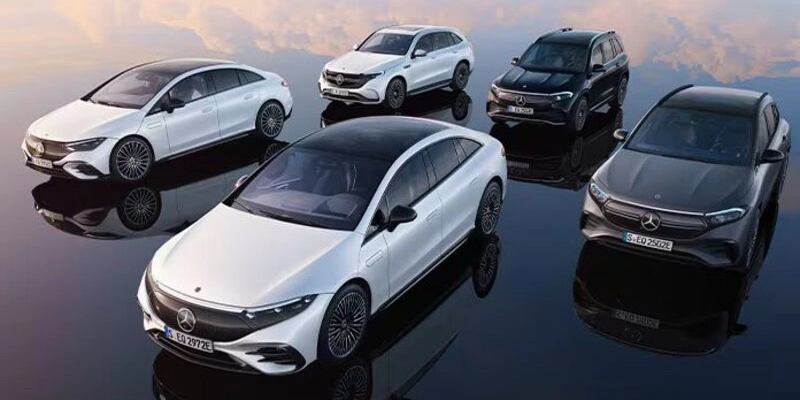Mercedes-Benz was one of the automotive companies that promptly responded to the removal of the environmental bonus by reducing the prices of its electric vehicles (EVs) in Germany.
Thus, until January 31, customers continued to receive a direct discount from the automaker, in addition to the state compensation of 3,000 euros.
The offer has already expired, but the company continues to subsidize the manufacturer’s part for orders in 2024 until further notice, in order to promote electromobility.
“Vehicle prices reflect high customer benefits and superior product substance,” says Stephan Frehlandt, Spokesperson for Mercedes-Benz Germany, to Mobility Portal Europe.
To achieve this, the multinational follows a clear and consistent pricing policy.
“Maintaining value for our customers is our main focus, prioritizing higher value sales comes ahead of chasing higher absolute volumes,” he explains in this regard.
Sales prices are determined by a series of factors, including market conditions in this case, as well as the segment, product lifecycle, or equipment level.
These aspects vary from region to region, so each market can individually respond to customer demands in accordance with its profitable growth guidance.
This is in order to remain disciplined, “even in a volatile market environment”.
As part of its strategy, it closely monitors market developments and makes price adjustments “where it seems necessary to achieve the targets”.
Currently, the list prices of battery electric vehicle (BEV) models from the German firm start at 50,777.30 euros.
During the first quarter of this year, Mercedes-Benz Group globally sold 568,400 cars and vans of all propulsion types.
Specifically, EVs accounted for ten per cent of the company’s total car sales, and 19 per cent if plug-in hybrids (PHEVs) are included.
According to a statement, PHEV demand led to a six per cent increase in sales in the first three months, while global sales of 100 per cent electric cars reached 47,500 units, out of a total of 463,000 (8 per cent less).
Meanwhile, total car deliveries in the first quarter of 2023 were 503,500, of which 51,600 were BEVs.
Regarding the German market, Frehlandt states: “We see a significant increase in both total order intake and incoming orders for BEVs in Q1 2024 compared to the same quarter of the previous year”.
What is Mercedes-Benz’s electromobility roadmap?

By 2025, all new vehicle architectures will be exclusively electric, and there will be a fully electric alternative available for each model.
By the end of the decade, the company will be ready to go fully zero emissions, wherever market conditions permit.
Meanwhile, their ambition is for the entire fleet of new cars to be carbon dioxide (CO2) neutral by 2039 in all stages of value creation.
What trends are evident in the sales of other German manufacturers?
On one hand, Volkswagen Group, which also decided to reduce the prices of its EVs in order to remain competitive despite the removal of the environmental bonus, increased its global deliveries by three per cent to 2.10 million cars in the first quarter of 2024.
However, it experienced a three per cent drop, to 136,400 vehicles, for fully electric models.
In Europe, deliveries of 906,700 automobiles remained at the previous year’s level (0.3 per cent less). Of these, 74,400 were BEVs (24 per cent less).
On the other hand, BMW Group delivered 594,671 vehicles worldwide to customers in the first quarter of this year (a 1.1 per cent increase).
The company achieved strong growth, especially in Europe, in the first three months, with a significant increase in BEVs.
In the first three months of 2024, the brand sold 82,700 units of BEVs worldwide, an increase of 27.9 per cent compared to the same period last year.








